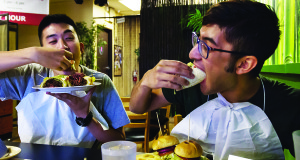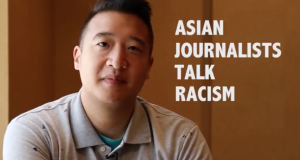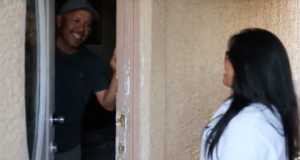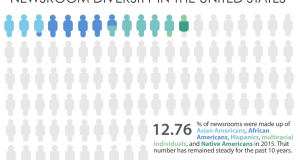New York City mayoral hopeful John Liu made history in 2001 as the first Asian American elected to the City Council in the five boroughs.
After serving eight years, he made more headlines in 2009 as the first Asian American to win citywide election, this one for New York comptroller, a post he’s held since.
He’s vying now for the top spot in Big Apple politics, but since Liu announced his run for mayor, he has continuously struggled with single-digit percentages in pre-election polls. Many point to his checkered fundraising efforts — including the arrest of two former campaign staffers and a loss of $3.5 million in matching public funds — while others claim that his competition is too strong.
But roadblocks to political success can go beyond scandal, popularity or ideology. An Asian American politician and a scholar say the same thing that put Liu in the record book could hold him back.
“While the Hispanic and African American communities have been developing leaders in the past four decades, it hasn’t been so in the Asian community,” said Shiro Floyd Mori, president and CEO of the Asian Pacific American Institute for Congressional Studies.
And it’s not just the shortage of leaders on top that influences the political landscape.
Although Asian Americans are New York state’s fastest growing minority, New York City Councilwoman Margaret Chen said many aren’t ready or registered to vote.
“Often people have to wait five, 10, or 15 years to get their citizenship, or they may not be interested due to a language barrier,” Chen said. While Asians make up 13 percent of the population, less than half are actually eligible to vote.
The obstacle to entry for Asians is also made even more inaccessible by the “political machine,” Mori said.
“It is hard to become a member of the country club without sponsors, so if you are not part of the chamber of commerce, it may be hard for you to get into the country club, so it becomes a vicious circle in which AAPI leaders are caught in,” Mori said. “In large city politics it then becomes difficult to become part of the political machinery and it may take a multiple generations for barriers to be lifted.”
Consider Margaret Chen’s political journey. When she entered office in 2009, Chen and Peter Koo were the only two Asians out of 51 city council members. No other Asians are running this year. But according to the 2010 census, if New York City was proportionate to the actual population distribution, there should be seven Asian council members.
Even after winning, Chen said she still feels the pressure because of her race.
“People tried to pigeonhole me, that I was only going to represent Chinese people in Chinatown, even though I grew up in the city and worked to serve the city for five decades,” Chen said.
A Liu campaign spokesman did not respond to multiple requests for comment for this story.
The “bamboo ceiling” could be another reason Asian American political careers are hindered, Mori said. The parallel to the glass ceiling, or impediment against upward mobility for women, is a concept from Jane Hyun’s book “Breaking the Bamboo Ceiling.”
The good news is both Chen and Mori see this changing with an increasing Asian presence in Congress.
Among those who won recent elections are Reps. Mark Takano of California and Congresswoman Grace Meng of New York.
But Mori doesn’t consider being Asian in a non-Asian field a complete disadvantage.
“You don’t blend in with the other 15 candidates who are all white … it can be a strength because of the general model minority perception people have of Asians – achieving, hard-working, industrious, and educated – which is a myth for the whole population,” Mori said. “But it is an advantage to a candidate who can embody these positive things.”
 VOICES Publishing from the AAJA National Convention
VOICES Publishing from the AAJA National Convention







